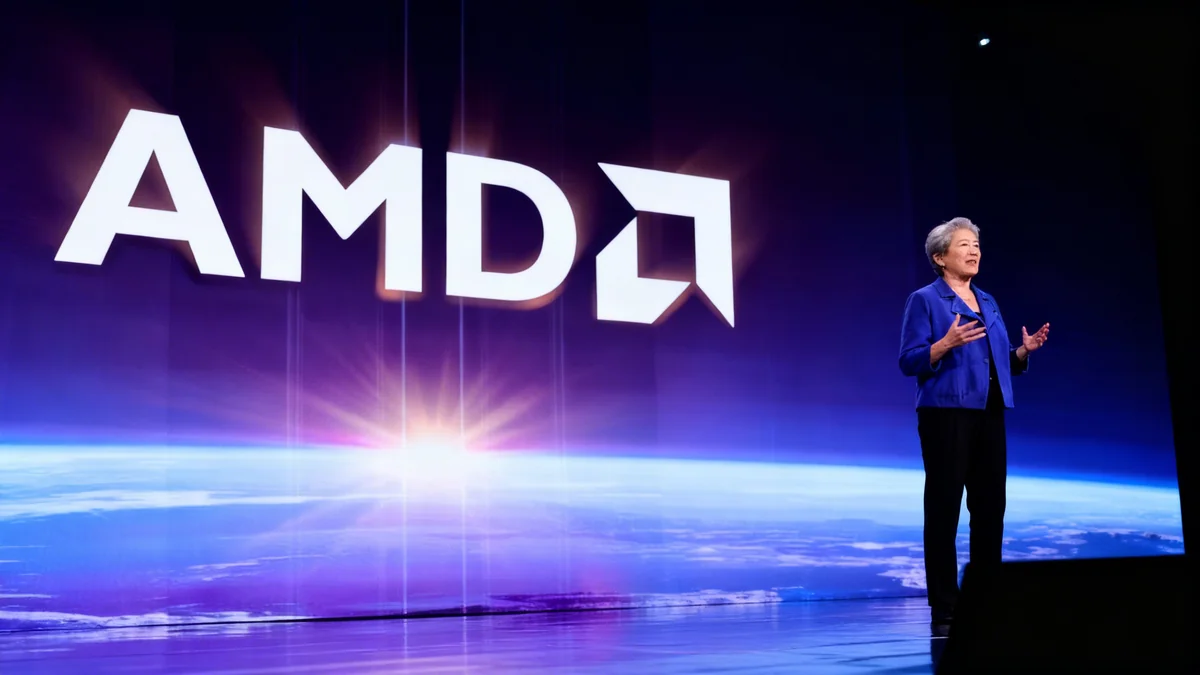Internal documents from Amazon Web Services (AWS) reveal a significant change in how artificial intelligence startups allocate their budgets. These companies are increasingly prioritizing spending on AI models and specialized developer tools, delaying investment in traditional cloud services, a trend AWS has identified as a "fundamental" shift.
This redirection of funds presents a new challenge to AWS's long-standing dominance in the startup ecosystem. The documents, written by the company's startup business team, indicate that founders now often adopt core AWS services at a later stage in their development, after first investing in technologies from companies like OpenAI and Anthropic.
Key Takeaways
- Internal AWS documents from March and July show concern over changing spending patterns among AI startups.
- Startups are prioritizing AI models and developer tools, delaying adoption of traditional AWS cloud services.
- Data from Y Combinator's 2024 cohort indicated lower AWS service adoption compared to 2022, while OpenAI and Anthropic usage was high.
- AWS faces increased competition from specialized "neocloud" providers and is perceived as lagging in the AI space, according to the documents.
A New Spending Hierarchy for Startups
For many years, securing services from Amazon Web Services was one of the first financial commitments for a new technology company. However, the generative AI boom has altered this established pattern. According to internal AWS communications, startups are now directing their initial capital toward a new category of AI-centric services.
These first purchases often include access to large language models from providers such as OpenAI and Anthropic, followed by investments in modern developer platforms. This means founders postpone buying traditional AWS compute and storage services until their companies are more mature and require advanced features like enhanced security and compliance.
Declining Adoption Metrics
An AWS document from March highlighted a notable trend among startups from the Y Combinator accelerator. Among the 2024 cohort, 59% reported using more than three AWS services. This figure represents a decrease of over four percentage points from the 2022 cohort. In contrast, 88% of these startups used OpenAI's models, and 72% used models from Anthropic. Usage of AWS's own AI model platform, Bedrock, was reported at just 4.3% among this group.
An AWS spokesperson stated that this metric was "at least a year old, and it's not indicative of usage or adoption of AWS," and maintained that the company remains the top choice for startups.
The Emergence of a 'Cloud 2.0' Stack
The documents suggest the rise of a new technology infrastructure, referred to as a "Cloud 2.0" stack. This modern stack is composed of specialized hardware like GPUs, unique software, and a growing number of AI-specific tools. These newer services are often less "sticky," meaning it is easier for a startup to switch between providers compared to traditional cloud infrastructure.
This creates a more competitive environment where early spending decisions can lock in customers before AWS has a chance to engage them. The documents warned that these new AI spending categories "can represent the majority of a startup's cloud consumption."
Case Study: Cursor's Spending Habits
To illustrate this trend, the AWS employees cited the AI coding startup Cursor as an example. Despite being considered an "all in" AWS customer, Cursor's spending on traditional cloud infrastructure accounted for less than 10% of its budget for newer AI categories.
The majority of Cursor's cloud spending was directed toward API calls to external AI models and services from "neocloud" providers. These newer vendors, such as CoreWeave and Lambda Labs, specialize in providing access to GPU servers essential for AI workloads.
Competitive Pressures and Pricing Concerns
The shift in startup spending is occurring as AWS faces heightened competition. In the second quarter, Google Cloud and Microsoft Azure both reported revenue growth exceeding 30% year-over-year, while AWS grew by 18%. Meanwhile, the smaller neocloud market has reportedly grown by over 200% in the past year.
"With Azure and Google Cloud Platform growing faster than AWS, the once-strong incumbent's market position may lead to three equal players," wrote Tomasz Tunguz of Theory Ventures in a recent analysis.
Pricing also appears to be a significant factor. One internal document noted that 90% of early-stage startups in the portfolio of Radical Ventures were building primarily on competitor clouds, citing the higher cost of AWS GPUs. This reportedly led to a meeting between Amazon CEO Andy Jassy and Radical Ventures leadership to develop a new strategy.
Public criticism over pricing has also surfaced. Gavin Baker of Atreides Management and Chamath Palihapitiya of Social Capital have both commented on AWS being "too expensive," particularly for AI-related hardware.
In response, an AWS spokesperson said the company is "always working to optimize products and services for our customers" and pointed to a recent 45% price reduction for certain Nvidia GPU-accelerated instances.
Perception and Strategy Challenges
Beyond pricing and competition, the internal documents reveal a struggle with perception. One memo warned that AWS is "still viewed as playing catch up in AI by many public/private investors, founders, and industry influencers." This perception reportedly makes it difficult for the company to secure speaking opportunities for its executives at key industry events, especially in the Bay Area.
AWS also identified an internal weakness in its ability to find and engage with promising new companies. The company's venture capital-driven discovery model was described as not being well-suited to identifying "AI-native solopreneurs and bootstrapped teams."
A Blind Spot in Discovery
The document stated, "This blind spot poses increasing risk to cloud market share." To counter this, the company planned to develop a data-driven model to better predict and surface high-potential startups earlier in their lifecycle.
Despite the concerns raised in the documents, an AWS spokesperson provided a statement affirming the company's strong position. They described the information as being based on "old data to reach outdated conclusions."
"AWS remains the top choice for startups to build because we offer the best core services as well as the most innovative and powerful generative AI offerings. That's why leading startups like Perplexity, Luma AI, Writer AI... and others all recently chose AWS," the spokesperson stated.
The company emphasized that when it is time to choose a trusted provider for their future, startups "overwhelmingly choose AWS," citing high adoption rates among companies on lists like the CNBC Disruptor 50 and Forbes AI 50.





